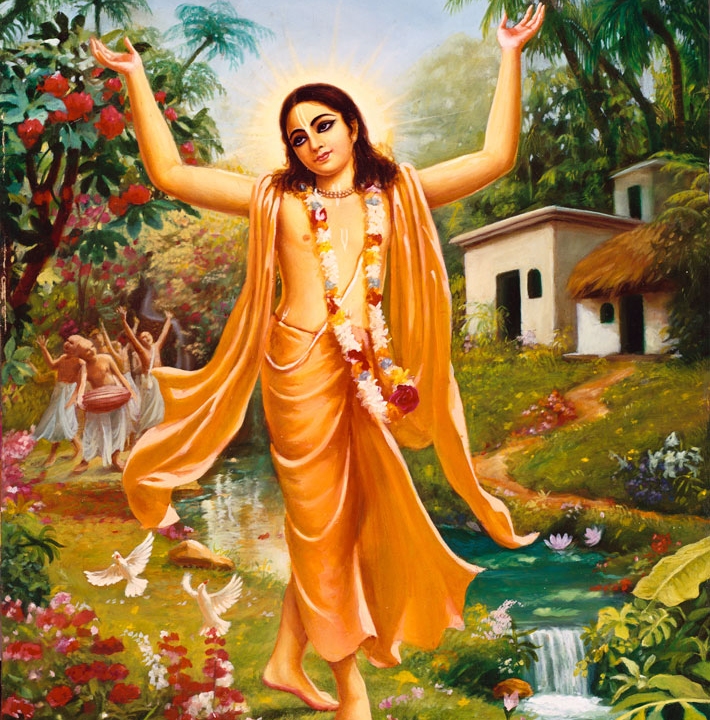Bhakti is Open to all. Bhakti is resting on God. It is lifting our hearts in thanks to God. Bhakti is the flow of devotion like the flow of a river. Bhakti is attraction of the Jiva to the Lord, just as there is attraction of the needle to the magnet.
Bhakti awakens and elevates man into a state of divinity. It intoxicates the devotee with divine Prem. It makes the Sadhaka (aspirant) rejoice in God. Emotional excitement is not devotion to God. Bhakti leads to immortality or God-realisation.
Bhakti can be practised under all conditions and by all alike. Divine love can redeem even the worst sinners. Learning, austere penance, study of the Vedas, and academic brilliance are not needed for the attainment of Bhakti or devotion. What is required is a deep and abiding faith in God. Unalloyed love, Vimoka or freedom from desires, Abhyaasa or practice, Kriya or doing good to others, Kalyaana or purity consisting of truthfullness, straight-forwardness, kindness, non-violence and charity; all these constitute the practice of Bhakti or devotion to God. Nishada was born in a low caste, Sabari was a rustic woman, Dhruva was an uneducated boy, Vidura and Sudama were very poor; Vibhishana lived in Lanka, Hanuman was a monkey, Jatayu was a bird, Gajendra was an elephant, the Gopis of Brindavan were not initiated into Vedic rites, but all these attained God-realisation on account of their devotion and self-surrender to God.
What is called Bhakti or devotion to God is a state of mind in which it is being melted by the force of spiritual discipline, the mind constantly flows towards the Lord. The intellect is found to be active in cognizing the glory and majesty of God, the emotion in experiencing the delight of divine bliss, and the will in consecrating all activities by complete surrender to Him.
The way of devotion is not different from the way of knowledge or Jnana. When intelligence matures and lodges securely in the mind, it becomes wisdom. When wisdom is integrated with life and issues out in action, it becomes Bhakti. Knowledge when it becomes fully mature, is Bhakti. If it does not get transformed into Bhakti, such knowledge is useless tinsel. To believe that Jnana and Bhakti-knowledge and devotion are different from each other is ignorance. “If Shri Adi Shankaracharya, who drank the ocean of Jnana as easily as one sips water from the palm of one’s hand, sang in his later years hymns to develop devotion, it is enough to show that Jnana and Bhakti are one and the same.”


